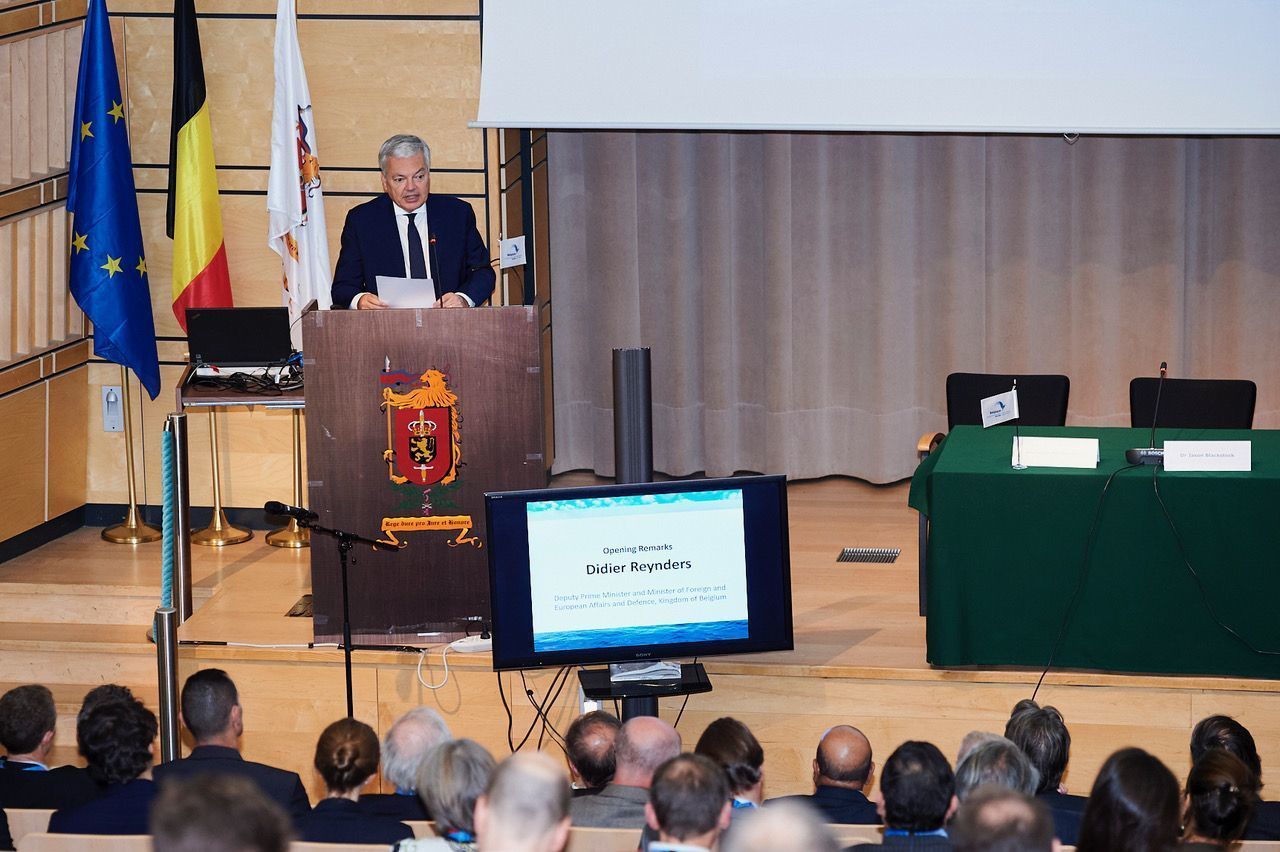The Security Implications of Emerging Climate Altering Technologies

Brussels, 23 October 2019
Representatives of several BDCD organisations took part in a seminar on The Security Implications of Emerging Climate Altering Technologies held at the Royal Military Academy on 23 October 2019.
Addressing the Climate and Security nexus is one of Belgium’s priorities for its 2019-2020 mandate as an elected member of the United Nations Security Council. Climate Change is a threat multiplier that is already having major impacts on international peace and security.
Recently more and more scientific research is aimed at mitigation alternatives through deliberate and large-scale intervention in the Earth's climate system or “geoengineering”, for example through solar radiation modification.
The event opened by Didier Reynders, (photo) Deputy Prime Minister and Minister of Foreign and European Affairs and Defence, Kingdom of Belgiumwas was organised by the Belgian Federal Public Service of Foreign Affairs together with the Environment & Development Resource Center (EDRC) in association with the Brussels Dialogue on Climate Diplomacy (BDCD), the Carnegie Climate Governance Initiative (C2G), EGMONT - The Royal Institute for International Relations and the Global Military Advisory Council on Climate Change (GMACCC).
The main aim was to take stock of current academic thinking on the security implications of these unprecedented techniques. In addition, the event addressed the frameworks for governing geoengineering from both a security and climate perspective. The aim is to gather stakeholders from different backgrounds to stimulate an open exchange of ideas, to raise awareness and to contribute to further policy development.